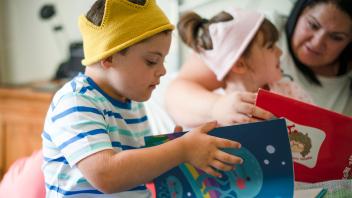A trusted friend recently sent me a link to a new “children’s book” which was described as funny and subversive. She knew as well as I do that this book is really a parody — a parent’s lament about sleepless children. (You may have heard about the book; it’s on various bestseller lists.)
I spoke to another valued friend this morning who has a very different take on the same book. She indicated that she thinks it is self-indulgent; a one-line joke told over and over — for which the writer is laughing all the way to the bank. In other words, she thinks that this parody gone viral is just another money-maker.
Words have clout. Books have staying power. Together, they create potent experiences for children and adults together or individually. Not surprisingly, adults are often offended when profanity or words with dual meanings or shady connotations are used in books for young people.
Do books like the parody mentioned (and discussed here ) suggest that this kind of language is okay for adults but not children? If something is acceptable for parents, why not for children? (As parents and teachers know, kids do as we do, not necessarily what we say to do.)
How far off is it to think that adults who may be immune to profane language encourage the children they live and work with to develop immunity to it as well? Do we become desensitized to limited, poor, downright rude language much as children become insensitive to violence in media when given a steady diet of it?
Is our ability to express ourselves becoming limited to sound bites, tweets, and yes, four-letter words? Why does it even matter?
I think that a great deal is lost, frankly — including or maybe especially our ability to communicate nuance not to mention the ability to find humor in more than a one-time joke.
To my thinking, it matters a lot.

